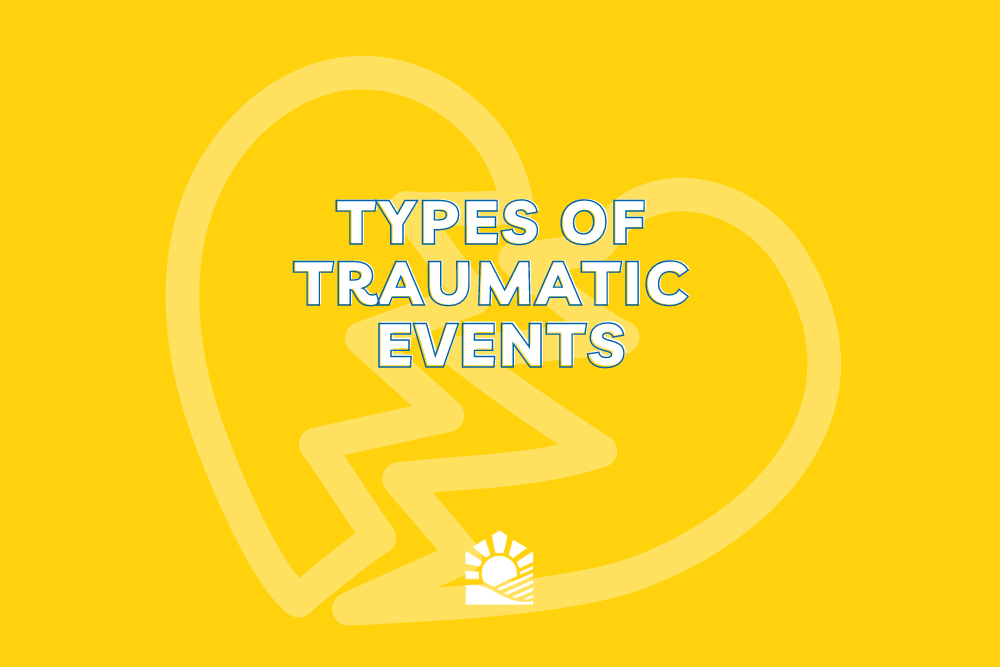Read the latest and greatest from our team
of incredible specialists.

Beach House Recovery Center » Blog » Types of Traumatic Events
Some estimates suggest as many as 70% of American adults experience trauma at least once in their lives. Though you might associate the word trauma with violence, rape, abuse or near-death experiences, a range of other, less obvious, incidents can be just as damaging and disruptive.

Traumatic events can be one-time or ongoing. Examples of one-time traumatic events are:
Ongoing events that can be traumatic include:
Because everyone processes trauma differently, something that’s profoundly upsetting to you might not affect another person the same way, but that doesn’t mean your experience is less valid. It’s also possible for something that does not trouble you much in the moment to come back to haunt you later in the form of intrusive flashbacks, distressing nightmares or overwhelming emotions.
The psychological and physical effects of unprocessed trauma don’t always resolve on their own, and some may linger long after the event. The worst-case scenario is PTSD – a diagnosable mental illness that can severely disrupt your life if left untreated.
According to a leading premise of developmental psychology, trauma is a heritable trait. In other words, trauma passed down from previous generations can have a ripple effect on your future, even if you didn’t experience it firsthand. Everyone is susceptible to generational trauma, but some people are more vulnerable than others due to generations of systemic exploitation, discrimination and abuse. For example, some evidence suggests that families of Holocaust survivors seek psychiatric help at disproportionately high rates.
Integrated trauma treatment guided by a trained therapist is essential to break these patterns, learn to let go of internalized negativity and ensure you don’t pass the harmful behaviors along to your children and grandchildren.
If you are a trauma survivor with lingering symptoms, drugs and alcohol may seem like a reasonable coping mechanism to dull your pain. Unfortunately, your stress levels will eventually return to their previous height as the effects of the substance wear off. And, if you try to quit drinking or using, you might find your PTSD symptoms make your withdrawal more severe.
Since PTSD and addiction can magnify each other, it’s critical to seek help for both conditions simultaneously. Work with an experienced health professional who can identify the signs of a dual diagnosis and develop a treatment plan to improve your mental health.
Many clients arrive at Beach House Center for Recovery after years of struggling with untreated trauma and other mental health problems alongside a substance use disorder. We offer a combination of people, purpose and passion that can help you regain your life. To learn more about our treatment options or verify your insurance coverage, reach out to our admissions counselors today.
Whether you’re researching for yourself or a loved one, Beach House can help. We understand that this is a serious time in your life and that the treatment center you choose matters. We want you to feel comfortable and empowered to make the right decision for yourself, a friend, or a family member. This is why a counselor is waiting and available to answer your questions and help put your mind at ease regarding the next steps. Many of the staff at Beach House have walked in your shoes. If you feel you’re ready or want more information about how to help a loved one, we can help today. You can also learn why we are voted the #1 rehab for addiction treatment in Florida.
We accept most major insurance plans and can verify your benefits quickly and confidentially.
We’re committed to helping you access the care you need, our admissions counselors can guide you through your coverage options and available resources.





"*" indicates required fields